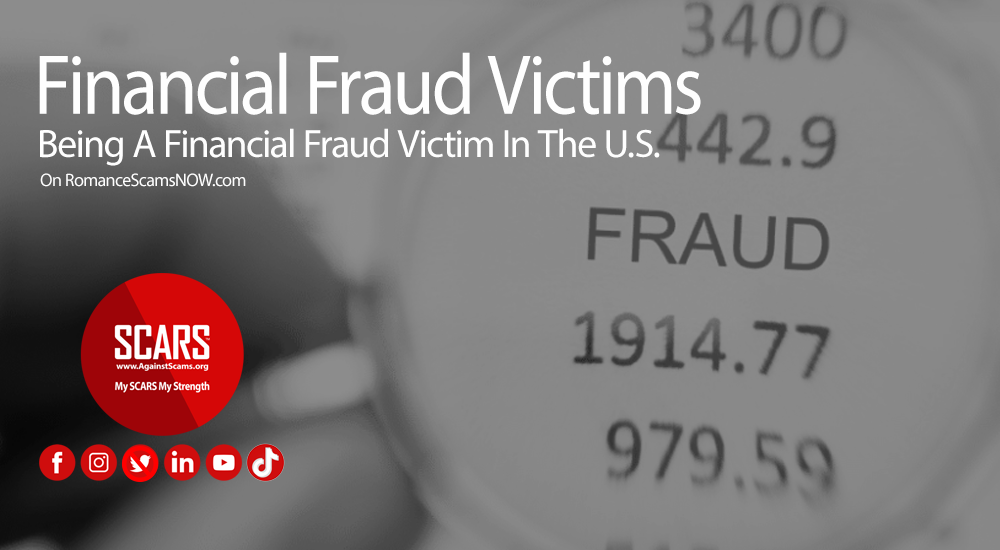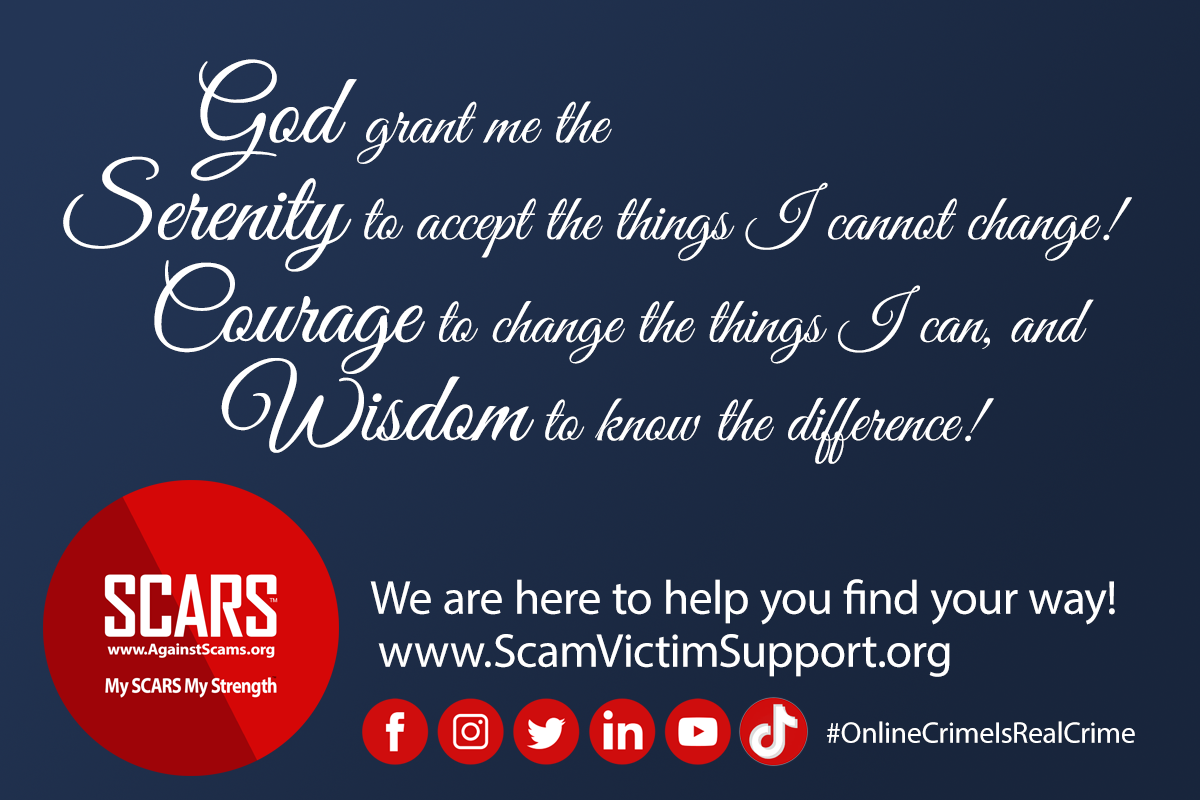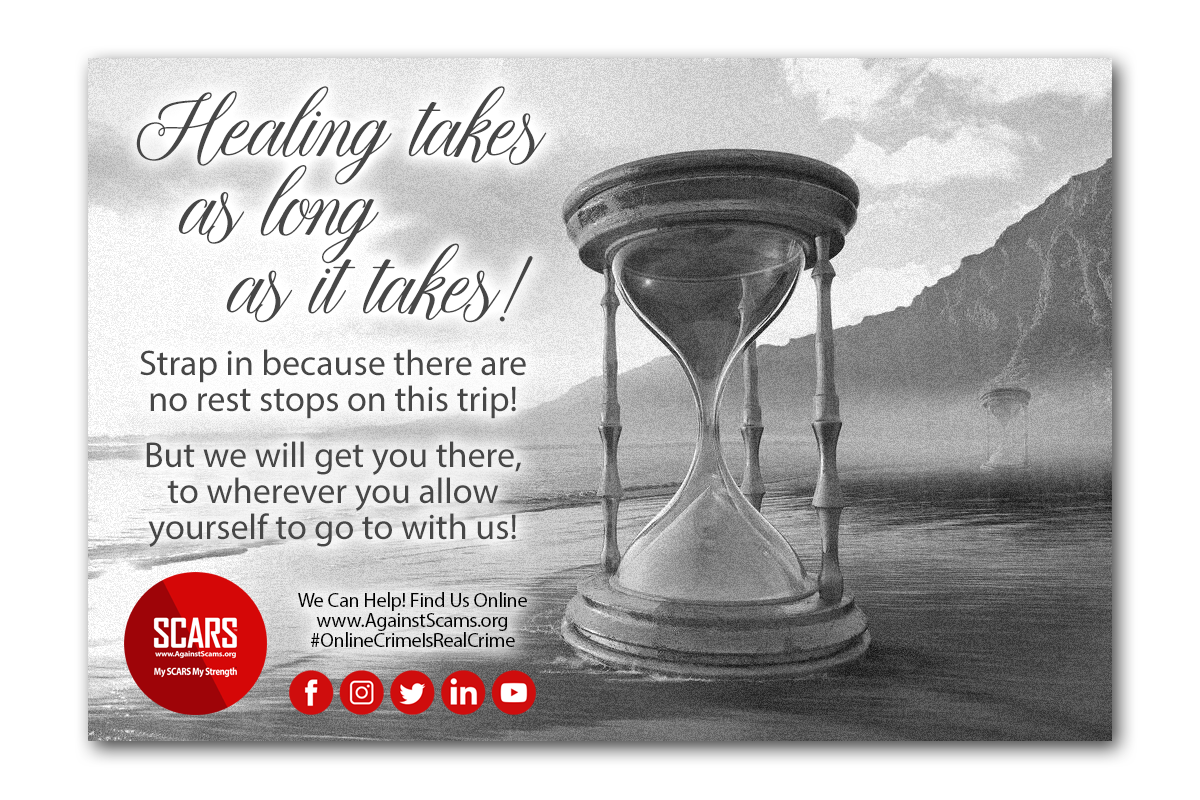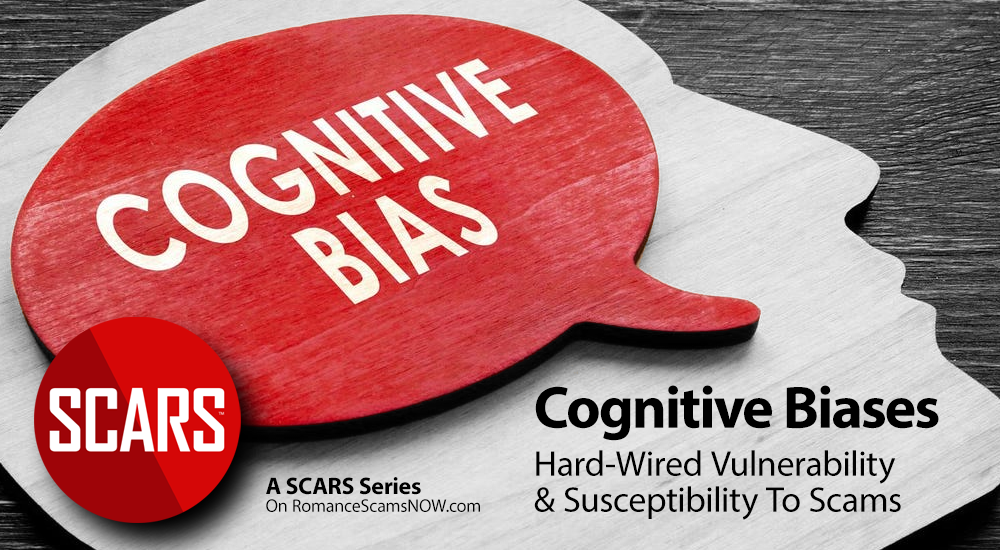
SCARS Institute’s Encyclopedia of Scams™ Published Continuously for 25 Years

Romance Scams Trauma Recovery Tips
A SCARS Recovery Insight
Scam Victim Frequently Suffer From Trauma
Here are tips from recognized experts to provide a direction for scam victims or any individual that may be suffering
These are only a general guide, but if you feel that you are experiencing trauma see below for a link to trauma professionals that can help.
Recovery Tip 1: Get Moving
Trauma disrupts your body’s natural equilibrium, freezing you in a state of hyperarousal and fear. As well as burning off adrenaline and releasing endorphins, exercise and movement can actually help repair your nervous system.
- Try to exercise for 30 minutes or more on most days. Or if it’s easier, three 10-minute spurts of exercise per day are just as good.
- Exercise that is rhythmic and engages both your arms and legs—such as walking, running, swimming, basketball, or even dancing—works best.
- Add a mindfulness element. Instead of focusing on your thoughts or distracting yourself while you exercise, really focus on your body and how it feels as you move. Notice the sensation of your feet hitting the ground, for example, or the rhythm of your breathing, or the feeling of wind on your skin. Rock climbing, boxing, weight training, or martial arts can make this easier—after all, you need to focus on your body movements during these activities in order to avoid injury.
Recovery Tip 2: Don’t Isolate
Following a trauma, you may want to withdraw from others, but isolation only makes things worse. Connecting to others face to face will help you heal, so make an effort to maintain your relationships and avoid spending too much time alone.
- You don’t have to talk about the trauma. Connecting with others doesn’t have to involve talking about the trauma. In fact, for some people, that can just make things worse. Comfort comes from feeling engaged and accepted by others.
- Ask for support. While you don’t have to talk about the trauma itself, it is important that you have someone to share your feelings with face to face, someone who will listen attentively without judging you. Turn to a trusted family member, friend, counselor, or clergyman.
- Participate in social activities, even if you don’t feel like it. Do “normal” activities with other people, activities that have nothing to do with the traumatic experience.
- Reconnect with old friends. If you’ve retreated from relationships that were once important to you, make the effort to reconnect.
- Join a support group for trauma survivors. Connecting with others who are facing the same problems can help reduce your sense of isolation, and hearing how others cope can help inspire you in your own recovery.
- Volunteer. As well as helping others, volunteering can be a great way to challenge the sense of helplessness that often accompanies trauma. Remind yourself of your strengths and reclaim your sense of power by helping others.
- Make new friends. If you live alone or far from family and friends, it’s important to reach out and make new friends. Take a class or join a club to meet people with similar interests, connect to an alumni association, or reach out to neighbors or work colleagues.
Recovery Tip 3: Self-Regulate Yourself
No matter how agitated, anxious, or out of control you feel, it’s important to know that you can change your arousal system and calm yourself. Not only will it help relieve the anxiety associated with trauma, but it will also engender a greater sense of control.
- Mindful breathing. If you are feeling disoriented, confused, or upset, practicing mindful breathing is a quick way to calm yourself. Simply take 60 breaths, focusing your attention on each ‘out’ breath.
- Sensory input. Does a specific sight, smell, or taste quickly make you feel calm? Or maybe petting an animal or listening to music works to quickly soothe you? Everyone responds to sensory input a little differently, so experiment with different quick stress relief techniques to find what works best for you.
- Staying grounded. To feel in the present and more grounded, sit on a chair. Feel your feet on the ground and your back against the chair. Look around you and pick six objects that have red or blue in them. Notice how your breathing gets deeper and calmer.
- Allow yourself to feel what you feel when you feel it. Acknowledge your feelings about the trauma as they arise and accept them.
Recovery Tip 4: Take Care Of Your Health
It’s true: having a healthy body can increase your ability to cope with the stress of trauma.
- Get plenty of sleep. After a traumatic experience, worry or fear may disturb your sleep patterns. But a lack of quality sleep can exacerbate your trauma symptoms and make it harder to maintain your emotional balance. Go to sleep and get up at the same time each day and aim for 7 to 9 hours of sleep each night.
- Avoid alcohol and drugs. Their use can worsen your trauma symptoms and increase feelings of depression, anxiety, and isolation.
- Eat a well-balanced diet. Eating small, well-balanced meals throughout the day will help you keep your energy up and minimize mood swings. Avoid sugary and fried foods and eat plenty of omega-3 fats—such as salmon, walnuts, soybeans, and flaxseeds—to give your mood a boost.
- Reduce stress. Try relaxation techniques such as meditation, yoga, or deep breathing exercises. Schedule time for activities that bring you joy such as your favorite hobbies.
Seeking Professional Help
Recovering from trauma takes time, and everyone heals at their own pace. But if months have passed and your symptoms aren’t letting up, you may need professional help from a trauma expert.
Seek help for trauma if you’re:
- Having trouble functioning at home or work
- Suffering from severe fear, anxiety, or depression
- Unable to form close, satisfying relationships
- Experiencing terrifying memories, nightmares, or flashbacks
- Avoiding more and more anything that reminds you of the trauma
- Emotionally numb and disconnected from others
- Using alcohol or drugs to feel better
Working through trauma can be scary, painful, and potentially re-traumatizing, so this healing work is best undertaken with the help of an experienced trauma specialist. Finding the right therapist may take some time.
It’s very important that the therapist you choose has experience treating trauma. But the quality of the relationship with your therapist is equally important.
Choose a trauma specialist you feel comfortable with. If you don’t feel safe, respected, or understood, find another therapist.
Ask yourself:
- Did you feel comfortable discussing your problems with the therapist?
- Did you feel like the therapist understood what you were talking about?
- Were your concerns taken seriously or were they minimized or dismissed?
- Were you treated with compassion and respect?
- Do you believe that you could grow to trust the therapist?
Treatment For Trauma
In order to heal from psychological and emotional trauma, you’ll need to resolve the unpleasant feelings and memories you’ve long avoided, discharge pent-up “fight-or-flight” energy, learn to regulate strong emotions, and rebuild your ability to trust other people. A trauma specialist may use a variety of different therapy approaches in your treatment.
Finding Help
Click here for a directory of trauma professionals (counselors and therapists) to choose from.
TAGS: SCARS, Scam Victims, Online Fraud, Online Crime Is Real Crime, Scam Recovery, Victim Trauma, Trauma Recovery, Recovery Tips, Recovery Program
PLEASE SHARE OUR ARTICLES WITH YOUR FRIENDS & FAMILY
HELP OTHERS STAY SAFE ONLINE – YOUR KNOWLEDGE CAN MAKE THE DIFFERENCE!
THE NEXT VICTIM MIGHT BE YOUR OWN FAMILY MEMBER OR BEST FRIEND!
By the SCARS™ Editorial Team
Society of Citizens Against Relationship Scams Inc.
A Worldwide Crime Victims Assistance & Crime Prevention Nonprofit Organization Headquartered In Miami Florida USA & Monterrey NL Mexico, with Partners In More Than 60 Countries
To Learn More, Volunteer, or Donate Visit: www.AgainstScams.org
Contact Us: Contact@AgainstScams.org
-/ 30 /-
What do you think about this?
Please share your thoughts in a comment below!
Table of Contents
- A SCARS Recovery Insight
- Here are tips from recognized experts to provide a direction for scam victims or any individual that may be suffering
- PLEASE SHARE OUR ARTICLES WITH YOUR FRIENDS & FAMILY
- By the SCARS™ Editorial Team
Society of Citizens Against Relationship Scams Inc. - The Issue Of Race In Scam Reporting
Click Here To Learn More!
LEAVE A COMMENT?
Thank you for your comment. You may receive an email to follow up. We never share your data with marketers.
Recent Comments
On Other Articles
- on Love Bombing And How Romance Scam Victims Are Forced To Feel: “I was love bombed to the point that I would do just about anything for the scammer(s). I was told…” Feb 11, 14:24
- on Dani Daniels (Kira Lee Orsag): Another Scammer’s Favorite: “You provide a valuable service! I wish more people knew about it!” Feb 10, 15:05
- on Danielle Delaunay/Danielle Genevieve – Stolen Identity/Stolen Photos – Impersonation Victim UPDATED 2024: “We highly recommend that you simply turn away form the scam and scammers, and focus on the development of a…” Feb 4, 19:47
- on The Art Of Deception: The Fundamental Principals Of Successful Deceptions – 2024: “I experienced many of the deceptive tactics that romance scammers use. I was told various stories of hardship and why…” Feb 4, 15:27
- on Danielle Delaunay/Danielle Genevieve – Stolen Identity/Stolen Photos – Impersonation Victim UPDATED 2024: “Yes, I’m in that exact situation also. “Danielle” has seriously scammed me for 3 years now. “She” (he) doesn’t know…” Feb 4, 14:58
- on An Essay on Justice and Money Recovery – 2026: “you are so right I accidentally clicked on online justice I signed an agreement for 12k upfront but cd only…” Feb 3, 08:16
- on The SCARS Institute Top 50 Celebrity Impersonation Scams – 2025: “Quora has had visits from scammers pretending to be Keanu Reeves and Paul McCartney in 2025 and 2026.” Jan 27, 17:45
- on Scam Victims Should Limit Their Exposure To Scam News & Scammer Photos: “I used to look at scammers photos all the time; however, I don’t feel the need to do it anymore.…” Jan 26, 23:19
- on After A Scam, No One Can Tell You How You Will React: “This article was very informative, my scams happened 5 years ago; however, l do remember several of those emotions and/or…” Jan 23, 17:17
- on Situational Awareness and How Trauma Makes Scam Victims Less Safe – 2024: “I need to be more observant and I am practicing situational awareness. I’m saving this article to remind me of…” Jan 21, 22:55
ARTICLE META
Important Information for New Scam Victims
- Please visit www.ScamVictimsSupport.org – a SCARS Website for New Scam Victims & Sextortion Victims
- Enroll in FREE SCARS Scam Survivor’s School now at www.SCARSeducation.org
- Please visit www.ScamPsychology.org – to more fully understand the psychological concepts involved in scams and scam victim recovery
If you are looking for local trauma counselors please visit counseling.AgainstScams.org or join SCARS for our counseling/therapy benefit: membership.AgainstScams.org
If you need to speak with someone now, you can dial 988 or find phone numbers for crisis hotlines all around the world here: www.opencounseling.com/suicide-hotlines
A Note About Labeling!
We often use the term ‘scam victim’ in our articles, but this is a convenience to help those searching for information in search engines like Google. It is just a convenience and has no deeper meaning. If you have come through such an experience, YOU are a Survivor! It was not your fault. You are not alone! Axios!
A Question of Trust
At the SCARS Institute, we invite you to do your own research on the topics we speak about and publish, Our team investigates the subject being discussed, especially when it comes to understanding the scam victims-survivors experience. You can do Google searches but in many cases, you will have to wade through scientific papers and studies. However, remember that biases and perspectives matter and influence the outcome. Regardless, we encourage you to explore these topics as thoroughly as you can for your own awareness.
Statement About Victim Blaming
SCARS Institute articles examine different aspects of the scam victim experience, as well as those who may have been secondary victims. This work focuses on understanding victimization through the science of victimology, including common psychological and behavioral responses. The purpose is to help victims and survivors understand why these crimes occurred, reduce shame and self-blame, strengthen recovery programs and victim opportunities, and lower the risk of future victimization.
At times, these discussions may sound uncomfortable, overwhelming, or may be mistaken for blame. They are not. Scam victims are never blamed. Our goal is to explain the mechanisms of deception and the human responses that scammers exploit, and the processes that occur after the scam ends, so victims can better understand what happened to them and why it felt convincing at the time, and what the path looks like going forward.
Articles that address the psychology, neurology, physiology, and other characteristics of scams and the victim experience recognize that all people share cognitive and emotional traits that can be manipulated under the right conditions. These characteristics are not flaws. They are normal human functions that criminals deliberately exploit. Victims typically have little awareness of these mechanisms while a scam is unfolding and a very limited ability to control them. Awareness often comes only after the harm has occurred.
By explaining these processes, these articles help victims make sense of their experiences, understand common post-scam reactions, and identify ways to protect themselves moving forward. This knowledge supports recovery by replacing confusion and self-blame with clarity, context, and self-compassion.
Additional educational material on these topics is available at ScamPsychology.org – ScamsNOW.com and other SCARS Institute websites.
Psychology Disclaimer:
All articles about psychology and the human brain on this website are for information & education only
The information provided in this article is intended for educational and self-help purposes only and should not be construed as a substitute for professional therapy or counseling.
While any self-help techniques outlined herein may be beneficial for scam victims seeking to recover from their experience and move towards recovery, it is important to consult with a qualified mental health professional before initiating any course of action. Each individual’s experience and needs are unique, and what works for one person may not be suitable for another.
Additionally, any approach may not be appropriate for individuals with certain pre-existing mental health conditions or trauma histories. It is advisable to seek guidance from a licensed therapist or counselor who can provide personalized support, guidance, and treatment tailored to your specific needs.
If you are experiencing significant distress or emotional difficulties related to a scam or other traumatic event, please consult your doctor or mental health provider for appropriate care and support.
Also read our SCARS Institute Statement about Professional Care for Scam Victims – click here to go to our ScamsNOW.com website.














![Money Recovery & Investigative Scams Target Scam Victims [Updated] Money Recovery and Investigative Scams Target Scam Victims Money Recovery Scams & Investigative Scams Target Scam Victims - on RomanceScamsNOW.com](https://romancescamsnow.com/wp-content/uploads/2016/02/Money-Recovery-and-Investigative-Scams-Target-Scam-Victims.png)




Thank you for these tips in such a concise list, especially the grounding technique and not isolating. I have had small issues with isolating. I go to my part-time job, still go to yoga class and to occasional coffee with a supportive friend. I have a great therapist and we’ve set a treatment plan. As soon as I realized I had experienced fraud I fought fear and anxiety. The anxiety was caused by wanting to learn how to protect myself online from this happening again as quickly as possible. Unfortunately, since law enforcement didn’t help I had to search online for information. Through a recommendation I contacted the Department of Justice who took my information and recommended the Cybercrime Network. I completed their applications and sit in on a zoom call but didn’t feel that their organization was helpful. Back to the internet and that is how I found SCARS. SCARS offers so much more between the survivor school, all the articles and videos plus the support group. This is where I’ve learned more than I ever anticipated and feel like recovery is a light on the horizon that slowly and steadily gets a little brighter. The isolation I experience is going through my day in a world that knows nothing about what happened to me – but I know what happened to me. I want to talk about it but after trying to tell trusted friends that resorted to bad language and calling me negligent, stupid, self absorbed, and lacking self control and intelligence; I am afraid to share with anyone else. At this time I am content that my husband is supportive, is standing by my side, trusts me and is absorbing all my tears. He is the one that I lean on and is there for me and is the only one who really should know. And now I have the SCARS support group as well. With my therapist, my husband the support group and survivor school I have the important tools I need to be able to move past that semi-divided state I feel in and move forward toward recovery. Someday that odd feeling will fade and my confidence will return.
This article is super helpful. The steps I took (as outlined in this article) after my scam ended and joining SCARS support group changed how I respond to my trauma for the better. Thank you SCARS institute!
I’m aware that I am going to need to learn how to regulate strong emotions, and rebuild my ability to trust other people.
I was a victim of a romance scam back in 2017. It was reported to the Police and Fraud squad. giving them all the information that I could recall. I lost thousands and I recieved very little help or support. It ruined my life and took me well over 2 years to get to a rerasonable state. In that time my health suffered with two bouts of Pneumonia the first almost verging on Pleurisy. PTSD, depression , stress and anxiety almost got the better of me. I hit lower than rock bottom. Losing everything and having to take out an IVA. I had 9 months of intensive psychotherapy two one hour sessions a week. I have been left with a badly scarred right ling due to the Pneumonia and Transient Global Amnesia caused by the PTSD depression, stress and anxiety. Here I am in 2021 about 75% back to normaL
Leon, we are very sorry this happened to you. Most victims mistakenly believe that scams are easily overcome. That is far from the truth as you experienced yourself. It can take time to recover and depending on what steps you take or avoid, it can be a year or two or several. Be proud of your recovery and your accomplishment in working your way forward. We hope our information can help you even more. We wish you all the best.